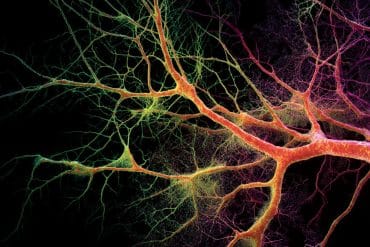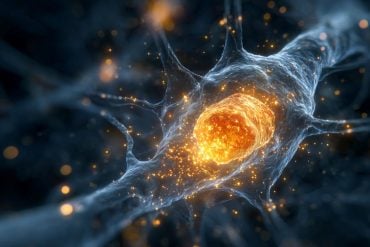Summary: A study examining the effects of cannabis on empathy reveals intriguing findings.
Regular cannabis users showed greater emotional comprehension and heightened functional connectivity in the anterior cingulate cortex (ACC), a brain region crucial for empathy. This increased connectivity was particularly notable with the left somatomotor cortex (SMC), suggesting a better understanding of others’ emotions.
These results open new perspectives on the potential positive impacts of cannabis use on interpersonal relationships and mental health.
Key Facts:
- Regular cannabis users demonstrated higher emotional comprehension, particularly in understanding others’ emotions, compared to non-users.
- Enhanced functional connectivity was observed in the ACC, especially with the left SMC, in cannabis users, indicating a deeper empathic processing.
- The findings challenge traditional views of cannabis effects, suggesting potential positive impacts on empathy and social interactions.
Source: Neuroscience News
In an intriguing turn of events, a recent study has brought to light a potentially positive aspect of regular cannabis use – an enhanced understanding of others’ emotions and increased brain connectivity in empathy-related areas.
This research, conducted on a sample of regular cannabis users compared to non-users, could shift the narrative around the implications of cannabis consumption on mental health and interpersonal relationships.
Cannabis, often associated with various negative mental health outcomes, may have an unexpected silver lining. Researchers found that regular users have an improved capacity for emotional comprehension, a critical facet of cognitive empathy. This involves a deeper understanding of the emotional states of others, a skill that is fundamental in human social interactions.
The study, involving 85 regular cannabis users and 51 non-users, utilized psychometric scoring of empathy subscales and resting state functional MRI to delve into the underlying neural mechanisms. The results were striking.
Regular cannabis users showed significantly higher scores in Emotional Comprehension compared to the control group. This suggests that these individuals are better at recognizing and understanding the emotions of others, a skill that is crucial in forming and maintaining social bonds.
A closer look at the brain’s functioning via fMRI revealed that this increased emotional comprehension in cannabis users is linked to greater functional connectivity (FC) in the anterior cingulate cortex (ACC).
The ACC is known to play a pivotal role in mediating empathic responses, making its enhanced activity in cannabis users particularly noteworthy. Notably, increased connectivity was observed between the ACC and the left somatomotor cortex (SMC), areas integral to processing and understanding emotions.
These findings are in stark contrast to the traditional view of cannabis as detrimental to mental health. Instead, the study suggests that regular cannabis use might positively influence the brain’s empathic processing.
This has significant implications for our understanding of the social and psychological effects of cannabis.
The study’s results also have broader implications for mental health and social interaction. Empathy, a critical component of social relationships, is enhanced in regular cannabis users. This might explain some of the positive social behaviors observed in these individuals, such as increased prosocial behavior and reduced hostility.
Furthermore, the findings could be used to develop new approaches to treating conditions characterized by deficits in empathy, such as certain personality disorders.
However, the study is not without its limitations. The researchers point out that the enhanced empathy and brain connectivity observed in cannabis users might be a pre-existing condition rather than a direct result of cannabis use.
Additionally, the study relied on self-reported data for cannabis consumption, which could introduce biases. Future research using more objective measures of cannabis use and a more balanced gender distribution is needed to build on these findings.
Despite these limitations, the study is a significant step forward in understanding the complex effects of cannabis on the brain and behavior. It challenges the prevailing negative perception of cannabis use, suggesting that, under certain conditions, it could have positive effects on mental health and social functioning.
In conclusion, this groundbreaking study opens new avenues for research into the therapeutic applications of cannabis. It suggests that, contrary to popular belief, regular cannabis use might enhance empathy and improve social interactions.
As we continue to explore the multifaceted effects of cannabis on the human brain, this research lays the groundwork for a more nuanced understanding of this commonly used substance.
About this cannabis, empathy, and brain connectivity research news
Author: Neuroscience News Communications
Source: Neuroscience News
Contact: Neuroscience News Communications – Neuroscience News
Image: The image is credited to Neuroscience News
Original Research: Open access.
“Empathy-related differences in the anterior cingulate functional connectivity of regular cannabis users when compared to controls” by Víctor E. Olalde-Mathieu et al. Journal of Neuroscience Research
Abstract
Empathy-related differences in the anterior cingulate functional connectivity of regular cannabis users when compared to controls
It has been reported that cannabis consumption affects the anterior cingulate cortex (ACC), a structure with a central role in mediating the empathic response. In this study, we compared psychometric scores of empathy subscales, between a group of regular cannabis users (85, users) and a group of non-consumers (51, controls).
We found that users have a greater Emotional Comprehension, a cognitive empathy trait involving the understanding of the “other” emotional state. Resting state functional MRI in a smaller sample (users = 46, controls = 34) allowed to identify greater functional connectivity (FC) of the ACC with the left somatomotor cortex (SMC), in users when compared to controls.
These differences were also evident within the empathy core network, where users showed greater within network FC. The greater FC showed by the users is associated with emotional representational areas and empathy-related regions. In addition, the differences in psychometric scores suggest that users have more empathic comprehension.
These findings suggest a potential association between cannabis use, a greater comprehension of the other’s affective state and the functional brain organization of the users. However, further research is needed to explore such association, since many other factors may be at play.








